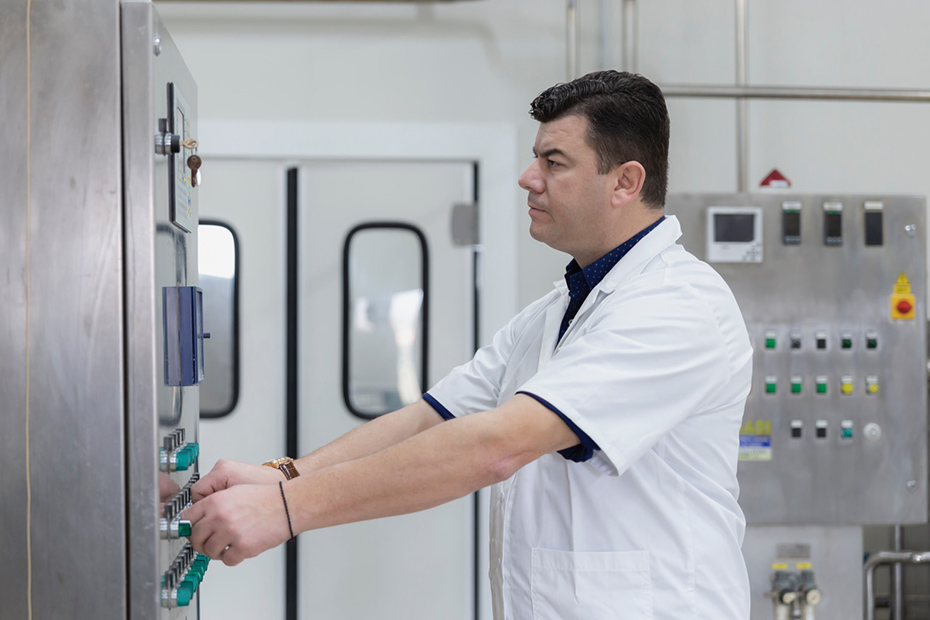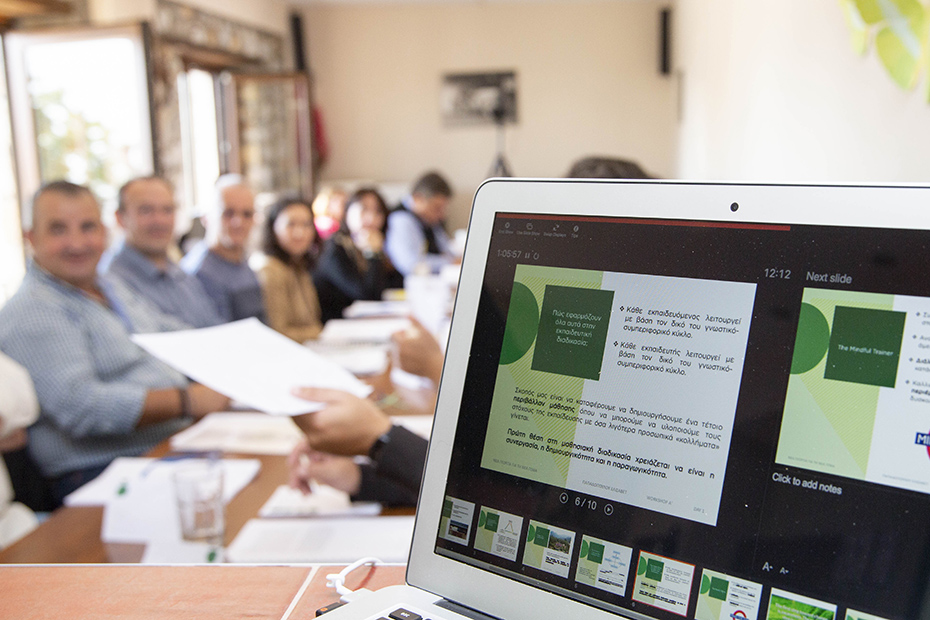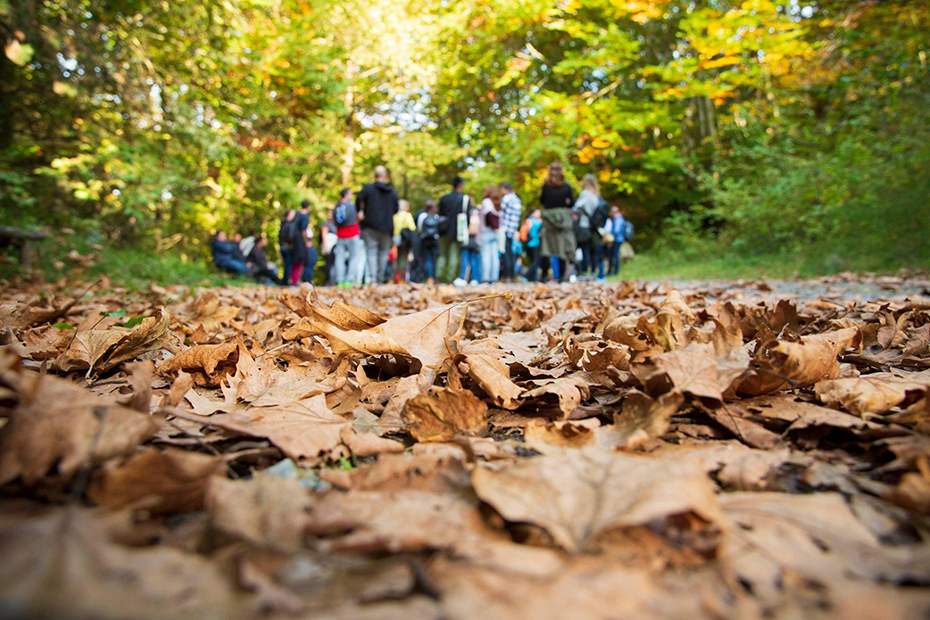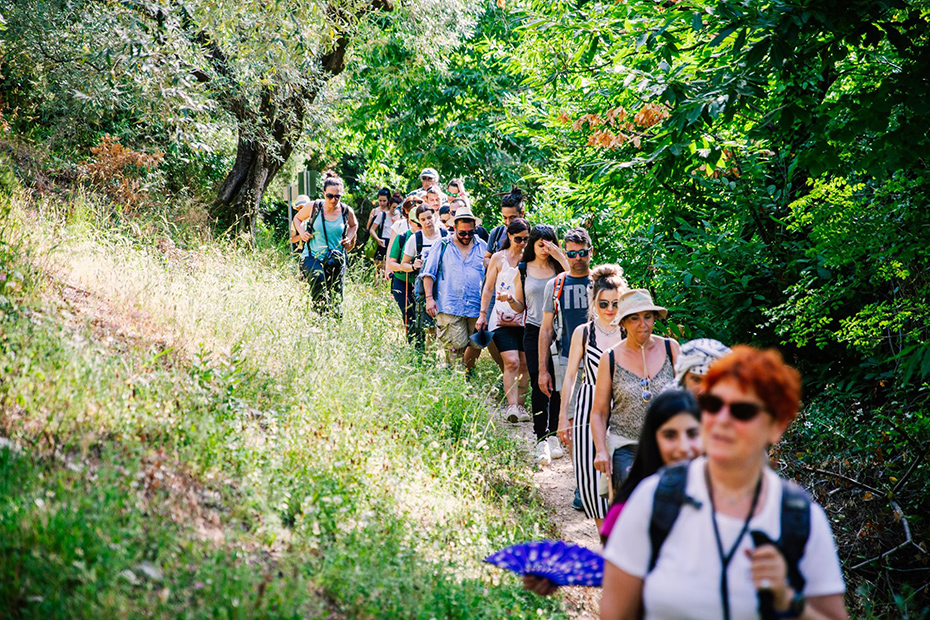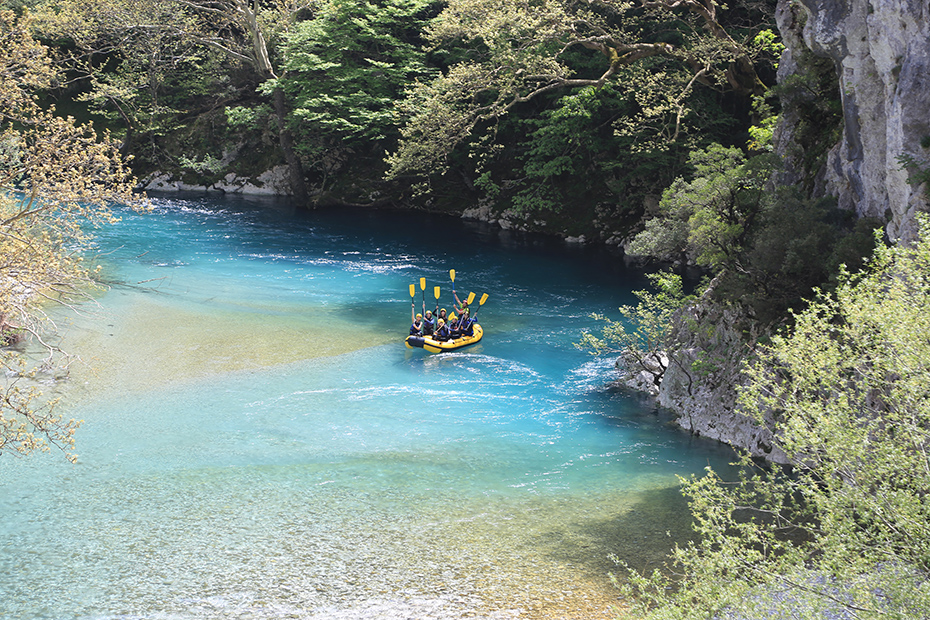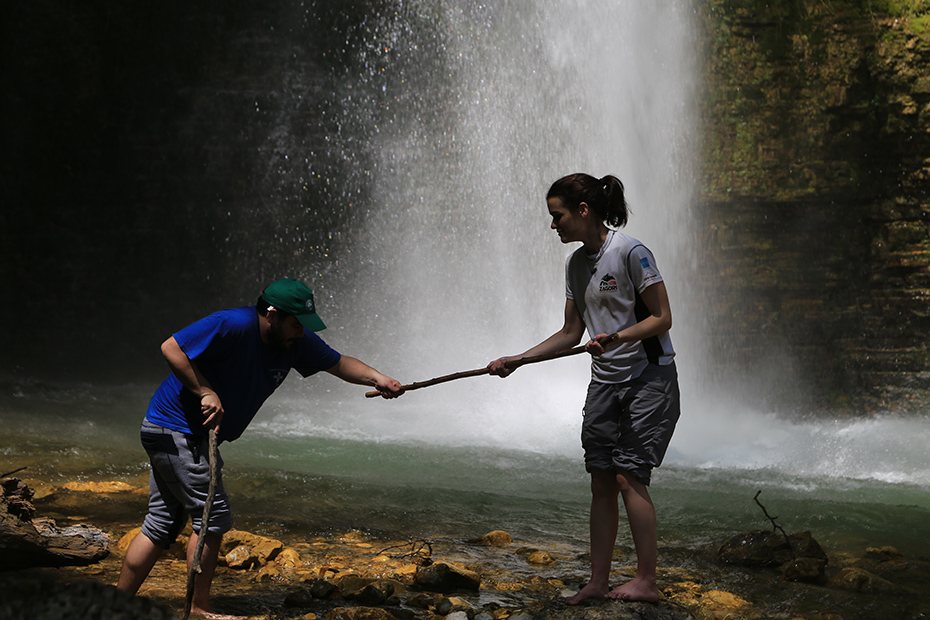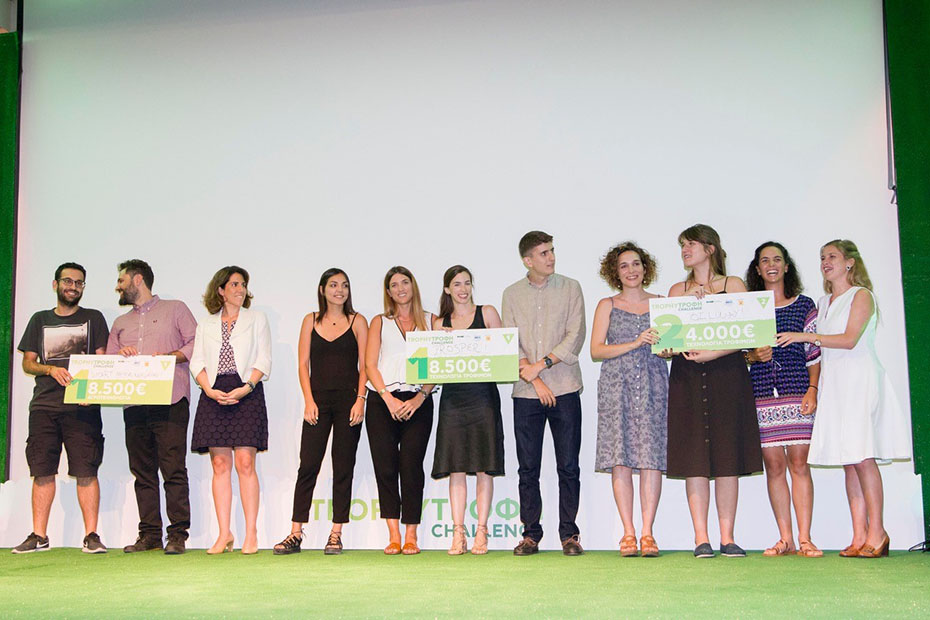
The First Year of “New Agriculture for a New Generation”
New Agriculture for the New Generation aims to create employment and entrepreneurship opportunities for young people in the Greek agri-food sector. The program is implemented at the initiative and with the exclusive support of the Stavros Niarchos Foundation (SNF) via a multi-year, $27.4 million grant, and is led by Rutgers University in collaboration with the Agricultural University of Athens and the American Farm School.
The program, which is free to participants, covers three main areas: training and educational programs, support for trainees and entrepreneurs in the development of innovative products, and the creation of infrastructure. A range of events are also organized through the program, including an international conference on alternative tourism in Xanthi and, this past July, the biggest innovation competition of the agro-food sector in Greece, the Trophy – Τροφή Challenge. From the 50 business ideas entered, five winners emerged.
The numbers speak for themselves, verifying the program’s potential and, by extension, the potential of the agro-food sector in Greece, while we are already (literally) enjoying the program’s first fruits. Pangaio Goat’s Ariani in fig and strawberry flavors, the first product produced via the program, hit grocery store shelves several months ago.
Pangaio Ariani. The 1st Product produced via the Program
We met with Nikos Martos, the man behind this product, to ask him about the new venture, New Agriculture for a New Generation’s contribution to it, and his future plans. Grab a glass of ariani in your favorite flavor and read the full interview below.
Q: First of all, would you like to introduce yourself and share with us some more information on how your company’s involvement in animal husbandry/cheesemaking began, as well as your latest venture?
Nikos Martos: My name is Nikos Martos and I own a dairy farm and a model sheep and goat animal farm in Eleftheroupoli. I come from Vlasti, an area with a great cheesemaking tradition, and I belong to the third generation of livestock raisers. In 1935, my grandfather moved his sheep and goats to Eleftheroupoli where he settled. I was born and raised there. And, of course, I followed the profession of the stock-farmer. From my very first steps, I realized that if I wanted to grow my business, I would need to seek out synergies and scientific support from a large organization. I found the latter in the American Farm School and the “Sheep & Goat; Enhancing Dairy & Meat Sector” program, which was designed and is implemented by the School in the context of the broader “New Agriculture for a New Generation” program.
So, along with my friends Ioannis Kapoulas, Giorgos Sehtanidis, and Stavroula Skartouli—also young farmers and participants in the same program—we formed a team of producers in Pangaio. Soon we were able to launch an innovative dairy product in the market, Goat’s Ariani* with fig and strawberry flavor. The innovative recipe was developed in collaboration with the Aristotle University of Thessaloniki and Creta Farm’s R&D company, Newmilk.
In essence, we implemented a new model of cooperation between the primary and secondary production sectors, ensuring the value-added benefits of this innovative product for our team.
*A Greek yogurt beverage
Q: What is the innovation in Goat’s Ariani?
NM: It is a fermented product from goat’s milk that has the probiotic characteristics of yogurt and the nutritional value of goat milk. Furthermore, it has no preservatives, and its taste is not intense, making it particularly appealing to children who do not readily drink goat milk.
Q: How have consumers welcomed your product so far?
NM: Although, as I said, this is a new venture and, therefore, the product is currently only available in small retail outlets in the markets of Kavala, Drama, and Serres, the target audience has embraced it, as evidenced by repeated sales.
Q: What is the biggest challenge you have encountered in your professional career so far, and how did you decide to take the risk to invest in a new product?
NM: I realized early on that the biggest challenge is the declining price of goat milk and feta cheese. This is what creates problems for the viability of both the farmer and the cheese maker. So, for me, it was a one-way street. Initially, we replaced a quantity of feta cheese with the goat cheese “Vlachiko,” which follows the traditional cheesemaking method. At the same time, we enriched our range with new products, utilizing goat milk and producing Goat’s Ariani with fig and strawberry flavor.
Q: How did the New Agriculture for a New Generation program help you?
NM: The program and our partners from the American Farm School have helped us improve the quality characteristics of our dairy products. With the counseling they have offered us, our team’s stock-farmers optimized the quality and the quantity of the raw material. In addition, they helped us formulate the recipe and set up the production process.
In other words, it is an ongoing and systematic relationship—collaboration, based on mutual trust.
Q: How do you think the program can help change the landscape of the agri-food sector in Greece?
NM: With the creation of new examples of collaborative structures around innovative products. Already, many farmers in the region are following this venture with great interest and have expressed their positive intention to join our team if consumer demand increases. The way this program helped us can also be the beginning of similar efforts in other areas.
In general, however, the livestock sector needs a great deal of continuous support, something that the Stavros Niarchos Foundation (SNF) realized and implemented through this program.
Q: Have you considered your next business steps? And if so, would you like to share them with us?
NM: The first results of our goat milk beverage have led to the optimism necessary for us to venture into the production of fresh goat milk, traditional goat yogurt and goat strained yogurt, thereby expanding our cooperation with local stock-farmers.
Q: What advice would you give a young person who would like to get involved in the agri-food sector?
NM: Young people must realize that it takes a lot of effort, perseverance, patience, and strong nerves. They must also base their work, from the beginning, on scientific support, and not just the empirical knowledge of the older generations. If they combine the above, they will see results and ensure a decent living in the Greek provinces.
The brochure on the 1st year of the program New Agriculture for a New Generation is available here.
